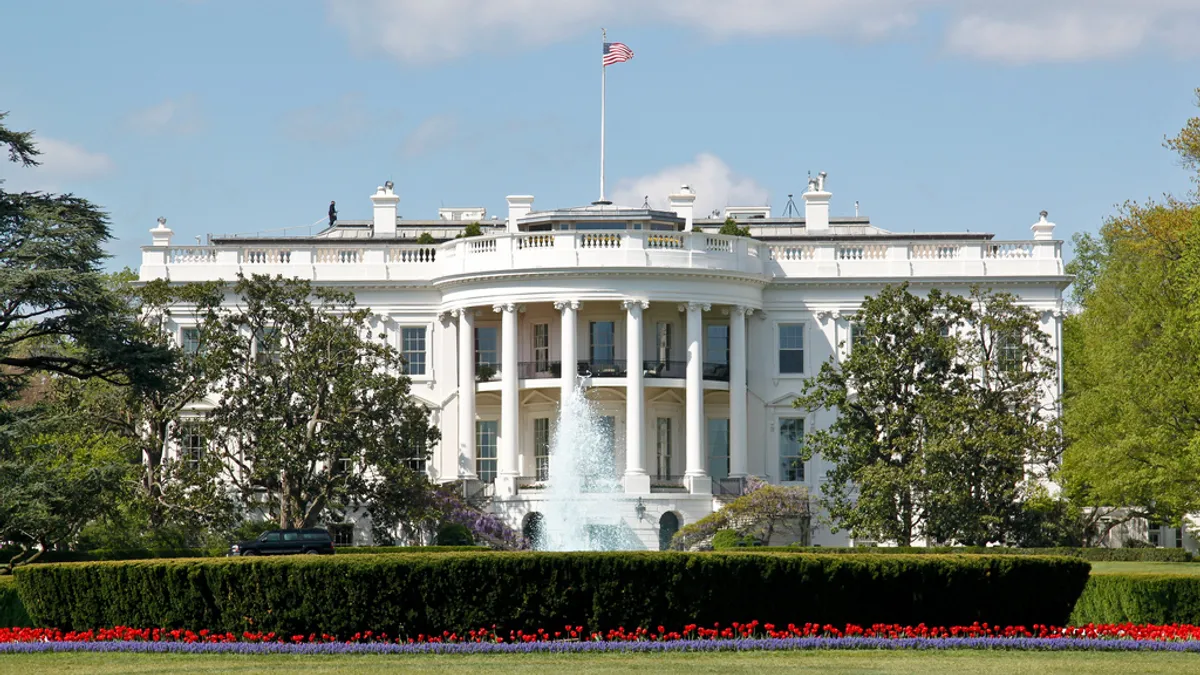Dive Brief:
- As part of the Obama Administration's Better Buildings Program, the White House last week announced new initiatives aimed at improving building efficiency including giving a few building owners complete access to energy usage data.
- By 2017, 18 utilities have agreed to provide building owners with whole-building energy data access, and 30 cities and states are committing to take new actions to make it easier to access that data.
- Additionally, two dozen cities, states and businesses committed to improve the energy efficiency of their buildings 20% by 2020, and seven cities and states from across the country are committing to install more efficient outdoor lighting.
Dive Insight:
The White House last week announced a series of partnerships designed to give building owners greater access to their energy use, in turn so that improvements can be made to building efficiency. The announcement was a part of the Better Buildings Program, which President Obama announced in 2011.
“Better Buildings Accelerator partners demonstrate how powerful a public-private partnership dedicated to solving a specific problem can be,” U.S. Secretary of Energy Ernest Moniz said in statement. “Bringing energy efficiency to scale is a national priority. We applaud the dedication of our partners to come up with innovative solutions that advance our nation’s ability to reduce carbon emissions, and spur economic savings in our businesses and communities.”
The White House said the city-utility partnerships have been successful in overcoming informational barriers to energy efficiency through "development of best-practice approaches that enable building owners to access whole-building energy data as part of the Energy Data Accelerator."
City-utility partnerships include, among many others: Austin Energy in Texas; the three large IOUs in California; PEPCO in Washington, D.C.; National Grid in New York; Xcel Energy in Minneapolis; Commonwealth Edison in Chicago.
The Department of Energy also announced it would be providing technical assistance to a dozen cities and states, with support from key organizations, in order to "streamline and systematize the use of complex building data." The three-year partnerships include: Atlanta, Ga.; Berkeley, Calif.; Cambridge, Mass.; Houston; Kansas City, Mo.; New York City; Orlando, Fla.; Philadelphia; Salt Lake City; Washington, D.C.; the California Energy Commission and Montgomery County, Maryland.














